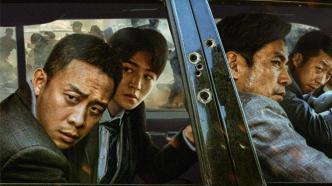
When he first came into contact with the project "Returning Thousands of Miles", Rao Xiaozhi was curious about the fact that a diplomat does not have such a large "force value". What kind of method can he use to bring so many of our compatriots from such a war The swirling country, brought back to your homeland?
When it was decided to do this, Rao Xiaozhi and his team were doing it, supplying a lot of knowledge. Through interviews with many diplomats and tracking reports after several evacuations, from massive Learn about the real conditions of frontline diplomats in their missions.
These "truths" were finally presented to the audience of the National Day file in the form of "Returning Thousands of Miles".
This unique story of evacuation of overseas Chinese has no "sacred army". With a diplomatic passport and their own wisdom, courage and responsibility, diplomats Zong Dawei and Cheng Lang have helped hundreds of thousands of people in war-torn China. The compatriots dredged a path back home.
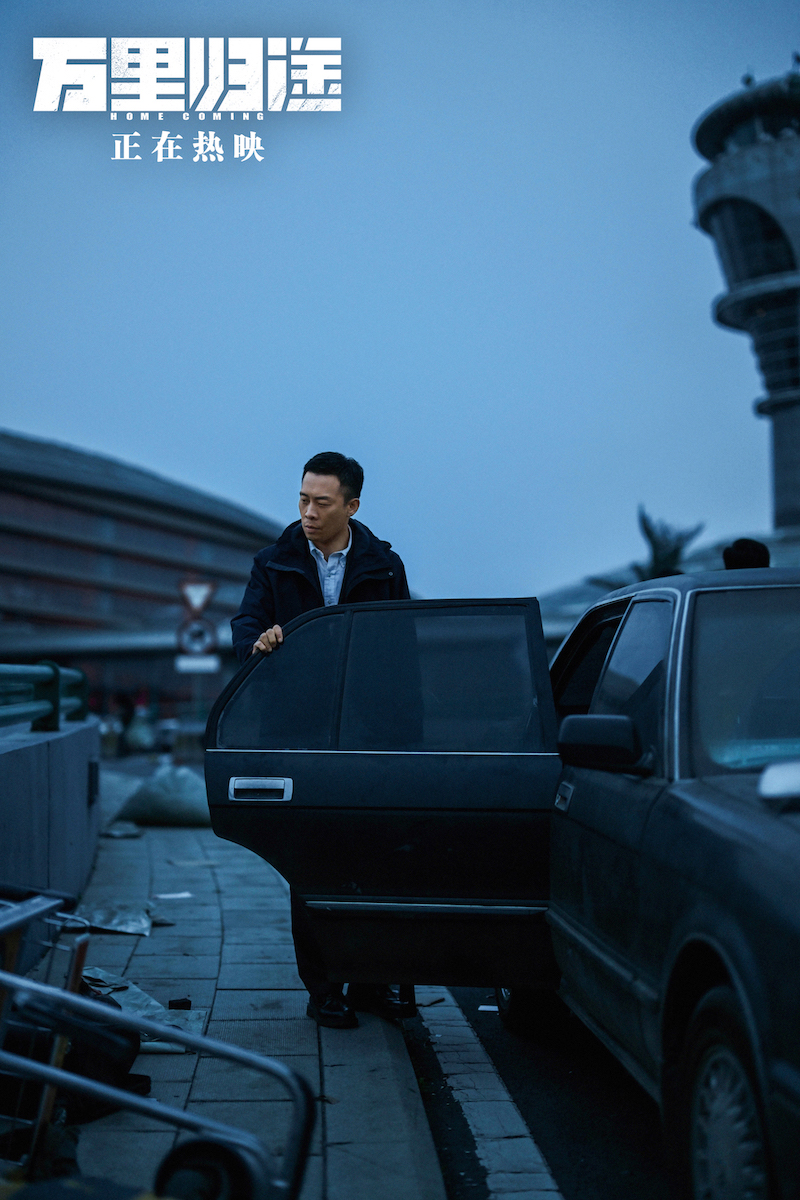
Photo courtesy of the organizer of Zhang Yi, who plays a diplomat in the movie "The Journey Home"
Diplomats were not allowed to use force, but the tension during the viewing process was pulled to the limit. Strong sensory stimulation comes from immersive realism. The camera closely follows the perspectives of the two diplomats from the First Middle School and the Youth League to "experience" the exotic towns where the war took place, typical African buildings and streets, crowds of displaced people, dusty and hazy gunshots and intruders who exchange fire at any time. A moment that seems to be a time to relax your vigilance is full of dangers. The madness and cruelty of war are always laid out in front of the audience in an unexpected way under the director's sharp scheduling and editing.
After the screening, many diplomats who had real diplomatic experience praised them. They saw their real experiences and the shadows of their working partners in the film.
For those who have seen the movie, it is hard not to be impressed by the immersive real battlefield environment in it, and the preparations began after the epidemic, and the movie, which will only be launched in April 2022, is a film that was filmed and produced in China throughout the whole process. The finished movie.
Starting from the scene survey in 2021, the art team has traveled all over the country, and has repeatedly surveyed scenes from Hainan, Inner Mongolia, Guizhou, Gansu, Ningxia and other places, looking for the possibility of restoring it as realistically as possible. "In domestic shooting, we need to restore authenticity in all aspects, and we pursue the greatest possibility in terms of conditions. How can we take domestic scenes, climate, and even the vegetation conditions at the time to make these domestic scenes look like foreign ones? Visual effects, art, including photography, the angle of the sun, and even the weather, we all have to feel it." Rao Xiaozhi recalled the details of the film selection.
To build a city for the film on a 1:1 scale, when the project was the heaviest, an art setting team of more than 1,000 people was used, and there were more than 70 buildings alone. In addition to the big city buildings, the details to the packaging of the small commodities sold in the market, the contents of the newspaper scraps floating on the ground, all belong to this created "Numia Republic World".
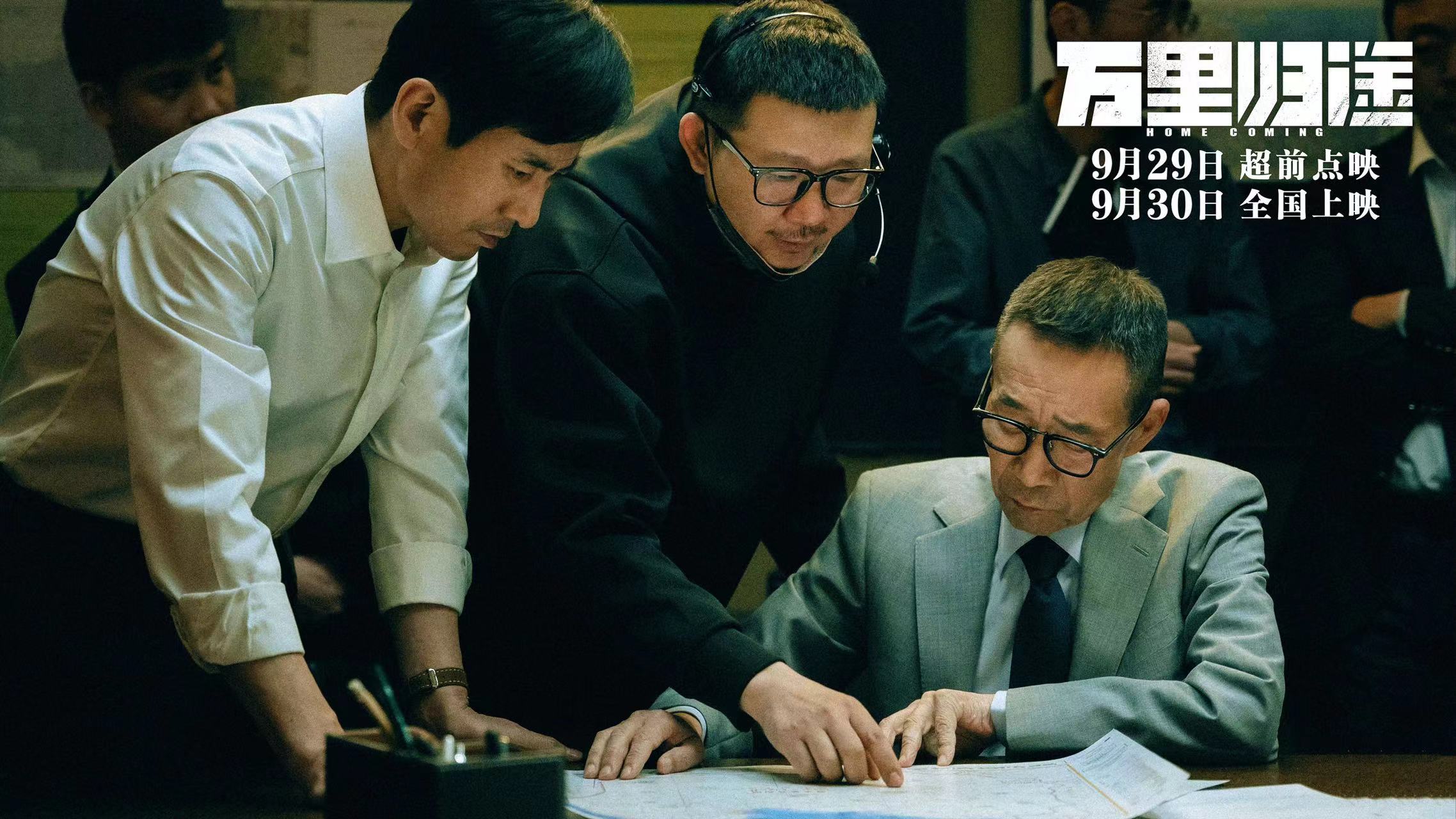
Taking photos of work on site
Until the film was released as scheduled, Rao Xiaozhi still felt that the smooth completion of the whole process from preparation to release depends on the careful and efficient cooperation of all aspects of our film industry. "Such a film can leave a footprint on our own film industry."
Rao Xiaozhi, who started from a small theater drama, started his own film career from the low-cost word-of-mouth work "Hello, Madman". "The Unknown" has become a dark horse story. "Homecoming", which entered the National Day archives, has both led the box-office reputation since its first day of release. Many people say that this is his transformational work. In Rao Xiaozhi's view, the creative path has not been different all the way. He still likes to tell stories and talk about ordinary people, they have love and fear, and they have light in their hearts.
As of press time, the box office of "Returning Thousands of Miles" has exceeded 450 million. Before that, Rao Xiaozhi was interviewed by The Paper, talking about the halo of a diplomat in the eyes of a director and the side of ordinary people, feeling the progress of the film industry under extreme operations, as well as the confidence brought by a strong national strength and the cherishing of peace.

Rao Xiaozhi attends the Beijing premiere of the movie "The Journey Home"
【dialogue】
The most dramatic tension comes from the halo of diplomats and the side of ordinary people
The Paper: The genre of this film is very different from your previous works. What was it like when you first came into contact with the project? Do you have any concerns about doing such a large-scale project?
Rao Xiaozhi: Actually, I didn't choose the topic at first, it was a topic that Director Guo Fan once did. They did some interviews and data gathering, but at that point the story wasn't formed. Later, Guo Fan came to me and recommended this topic to me, saying that he thought I was quite suitable. I myself also interviewed the diplomats who had experienced the front line, and read the relevant reportage. In the process, I was moved by the profession of diplomats. They have not undergone special force training, they have to rely on communication, wisdom, courage, and sense of responsibility to do this. I really want to know how a diplomat, who does not have such a large force value, is able to bring so many of our compatriots from such a war-torn country back to our own motherland. So I think it's going to be a good story, and one that deserves to be shot.
Although this time the genre is different and the subject matter is different, the original intention of our creation is the same. Because we still start by portraying the characters of "ordinary people", we still want to draw the diplomatic personnel to the perspective of ordinary people. Of course, they have special occupations, special identities, and special responsibilities, but they are actually ordinary people, just like us, they are all flesh and blood people. Whether it is in their own life, or when they are facing danger or difficulty, they will also be vulnerable or afraid. This is a normal human reaction.
The Paper: In the past, your works were all good at portraying little people, such as "The Unknown" and "The Crowd", but diplomats themselves are characters with a professional aura in everyone's impression. This kind of "halo" will What does it bring to the creative process?
Rao Xiaozhi: Yes, the kind of aura you mentioned is exactly what interests me at first. Our initial perception of diplomats is indeed more from the bright and bright images in the news media, but in fact, the front-line diplomats are more of the image of ordinary people, but I think this contrast is very interesting. The current images of the two diplomats are actually a combination of the experiences and shadows of many different diplomats in reality.

"A Thousand Miles Homecoming" "Group Photo of 125 People"
The Paper: In the past, there were also some movies about evacuation of overseas Chinese, basically from the perspective of soldiers. What do you think is the greatest dramatic tension in the story unfolding from the diplomat's point of view?
Rao Xiaozhi: In fact, it is what I call a sense of contrast. We cannot use weapons on the soil of other countries, we can only use our own communication skills and wisdom to surviving in a circuitous way to bring them back. But they're going to go through some wars, famines, pain you can think of, they're going through. Just like a consul posted on Weibo today, the most authentic evacuation of overseas Chinese is done by diplomats on the front line.
The Paper : Diplomats cannot use force, and there will be more movies and dramas. How to make it more thrilling when weaving a story? What was the most laborious part of the creative process?
Rao Xiaozhi: Since I came into contact with this project, we actually overturned many versions of the script. For example, the first version of the script actually only mentioned that Zong Dawei and his party went to the border and fought wits and courage with Hassan until they got through the first one. diplomatic channel. From the script to the present movie, there are actually a lot of changes and changes, and it's easy to draft. After looking for different directions, we finally settled on the current tune, which is to go home for the things in our genes that are more dear to the Chinese.
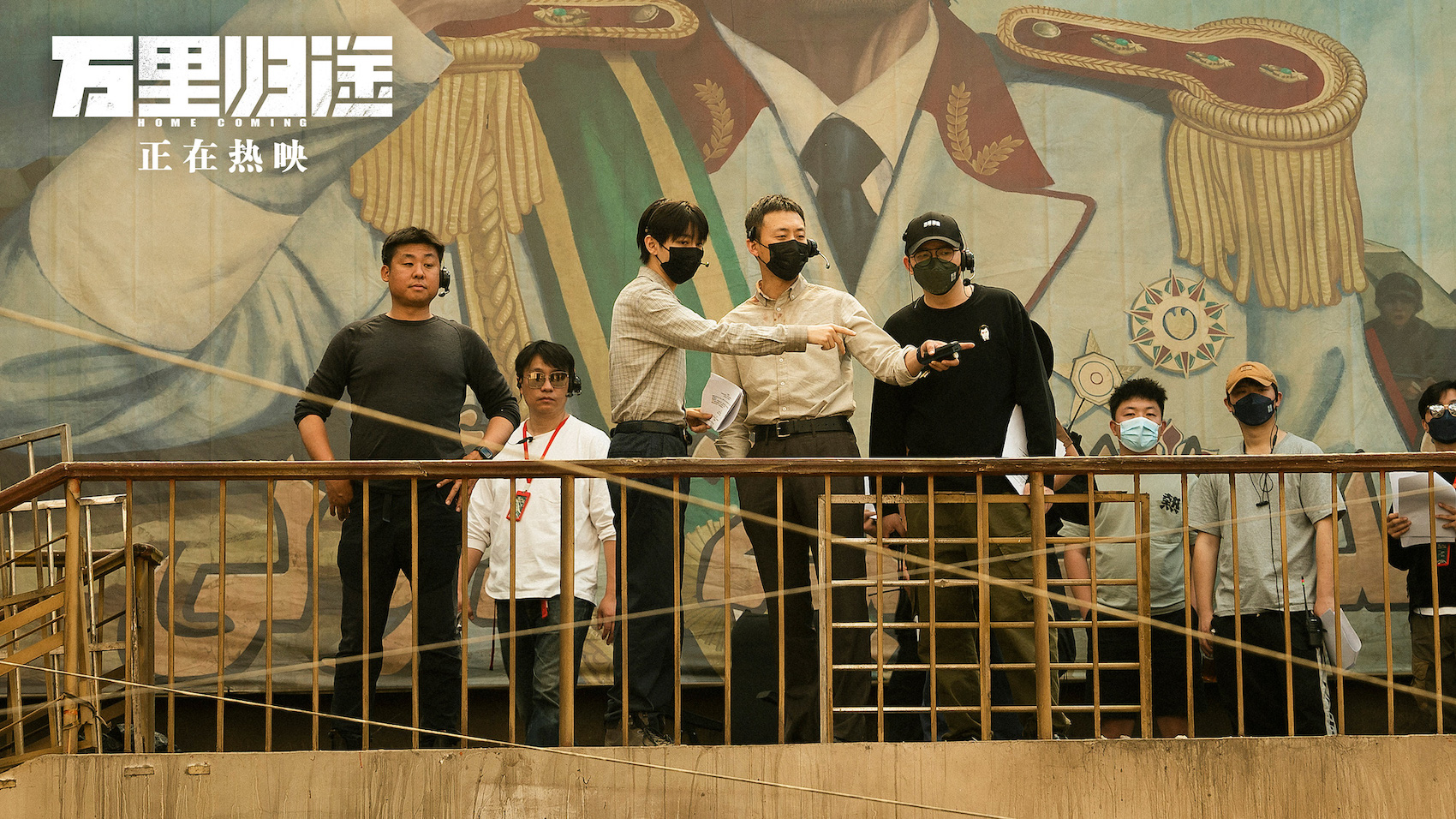
Zhang Yi and Wang Junkai at the filming site of "Homecoming"
The Paper: Zhang Yi and Wang Junkai, a pair of "old and new" characters, want to convey the image and status of a diplomat?
Rao Xiaozhi: I think they should be regarded as both teachers and friends, and also cause and effect each other. Zong Dawei is a very experienced diplomat, but at the same time he is also in a mid-life crisis in a sense, so his character is not very forgiving, but he is actually very responsible and kind , but also very compassionate and executive. There is a kind of person who is afraid of being responsible because of being responsible. Because he himself is a very responsible person, he is afraid of having the responsibility on himself. On the surface he may seem to think that he is less sunny and less positive, but in fact what he is doing, where he is giving, is where he is ready to sacrifice everything.
Cheng Lang is very young, he has the qualities that a diplomat needs to have, just like he said that he is very physically fit, that he has a first aid certificate, he is calm, but he is only inexperienced, he is just like us in all walks of life. A newcomer in various industries, he has the characteristics and qualities of this industry, but he has not yet gained the experience and lessons of this industry. The more he experiences, the more likely he will be like Zong Dawei, but it is also possible that because of Zong Dawei, because of this reminder, he may not be like Zong Dawei, I think this is an ordinary story The unfinished charm of it.
I like this combination. Cheng Lang is like Zong Dawei who just entered the Ministry of Foreign Affairs, but Zong Dawei does not want Cheng Lang to become the future Zong Dawei, so this is their contradiction. Zong Dawei inexplicably has a hope that you don't want to be me, but Cheng Lang said that I want to be you. This is the contradiction between them.
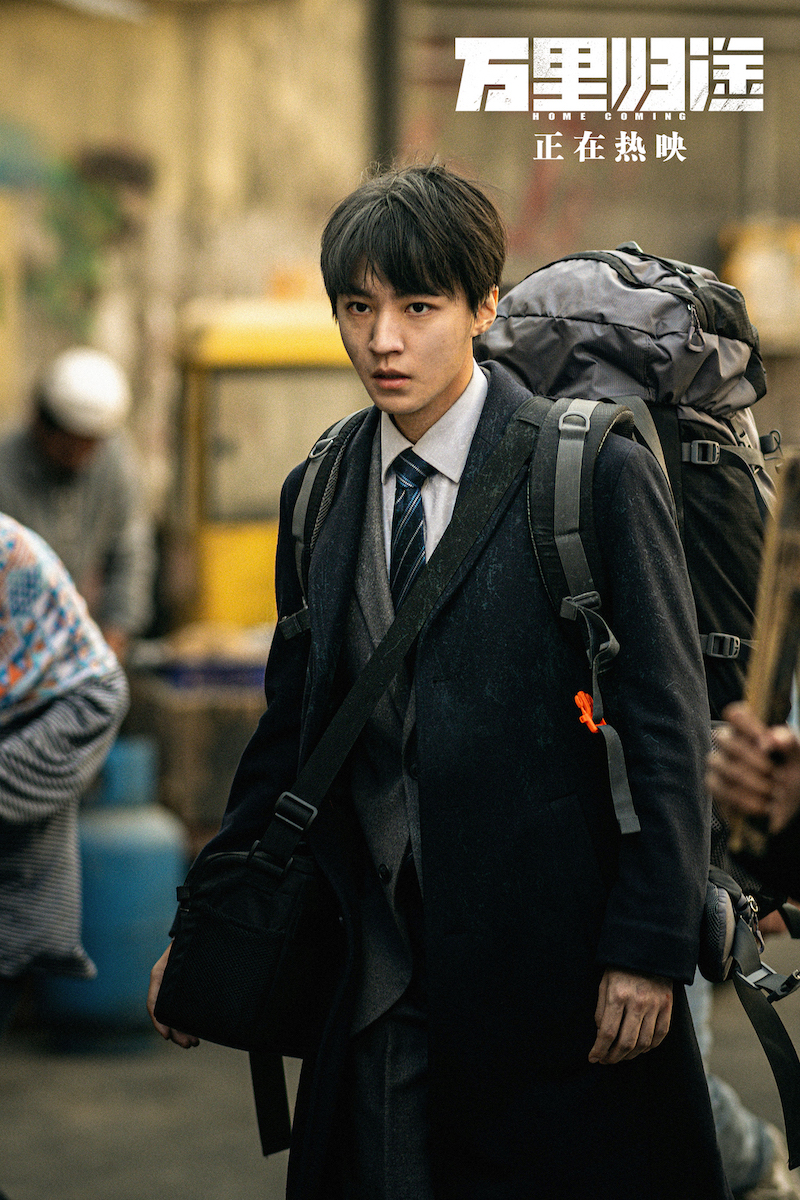
Wang Junkai looked forward with resolute eyes, walking through the crowd of foreign parades
Telling about war is to be able to cherish peace
The Paper: In addition to the line of diplomats, the story of Huaxing workers is also a line. Does this line also carry some of your ideas, but maybe because there is not enough space left, these people are not shown more in the final film?
Rao Xiaozhi: I always do this. From my own creative habits, I hope that every character - not just the protagonist - the small ones you see now, and even they will be expressed as some of the roles played by the group.
Because I hope that what we save is not a number, but a living person. Therefore, most of the 10-member group of the evacuated compatriots were actors from our drama troupe. They are the earliest actors in the group, we are still preparing, and they have already started rehearsing. After I came, I let them create their own characters and characters, whatever name and age they can think of, but we will give him a framework. They are migrant workers, so what kind of work the migrant workers do, these are created by actors. They helped us a lot with our script, and their characters were completely in line with the clues of Zong Dawei's growth that we wrote before. They found their own space in it to complete their own performances, I They did their job very well. We have a rehearsal room for them to create, and then in order to feel the feeling of walking, they go on foot, what will it look like when we perform, including the process of walking with weight through their rehearsal, our What is the degree of breathing, what is our experience after bearing weight, these stupid methods are actually a good way to feed back to our creation.
In fact, in our original shooting material, they are very rich. It's true that for many reasons, including space, we didn't end up showing them fully. There must be regrets and pity when I have to make a choice between two hours of material. But from a feature-length point of view, generally speaking, I have completed some of the parts that should be completed, and these smaller characters can really leave a clear and deep impression on the audience.
The Paper: An important background of the film is the strength of the country. In many cases, it has also become a key factor in resolving some conflicts. From a creative point of view, what role does this background and starting point play in the play of the film?
Rao Xiaozhi: There is no doubt that the national strength is strong, because the real situation is indeed the case. Our country has demonstrated a strong comprehensive national strength in some overseas regions, and their local people also take good care of us. But on the other hand, in a real war, you may not be able to immediately feel safe. We are also using wars in a certain part of the world to contrast our country's current well-being.
Of course we also cut some clips. For example, after a war broke out, diplomats have to wander between various factions. The first thing is to try our best to protect the lives of our compatriots. The second is that the country also has the interests of its own enterprises, or the interests of investing in local areas. These are things that diplomats need to do more, but we don’t put too much effort into them. at these points.
The Paper: After watching the movie, I will really sigh that peace is really important. I feel that the final location and easter eggs of the movie are also back to this starting point. Can you talk about some of the touches it gave you after filming this movie? ?
Rao Xiaozhi: War makes everything terrible. War quickly collapses a country and makes society quickly unstable. In the environment of war, it is not said that whoever protects who will sacrifice, it is possible that you will encounter an accident as soon as you go out, so the scenes of war, riots, and terrorist attacks that we show are actually In order to tell about peace is really a thing to cherish.
The harder we photograph wars, the more we can compare that our peace is hard-won and precious, and that we should persevere. The final point and easter eggs of the movie are mainly to convey the old saying: we are not living in a peaceful era, but in a peaceful country. We hope that everyone can cherish peace and cherish the present life. With this intention, our film was born.
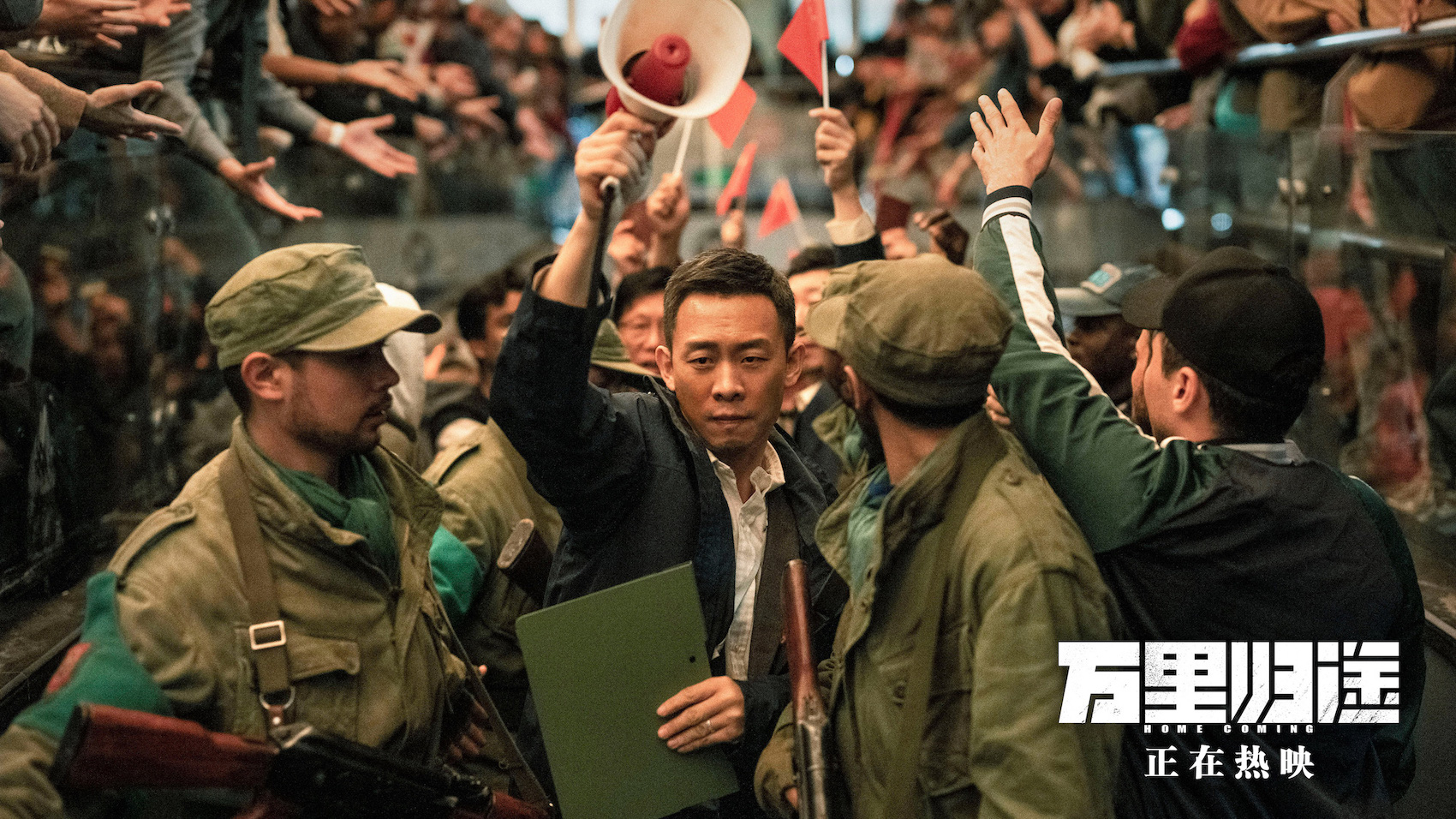
Zhang Yi, who played a diplomat in the movie "The Journey Home"
Overseas stories, set in China, extreme operation achieves the peak of industrialization
The Paper: This presentation of the overseas battlefield environment is almost absent from Chinese films in the past. How did you choose and realize this sense of authenticity?
Rao Xiaozhi: When we set the structure, the style has already been set. It is documentary and leading. We stick the camera closely to the actor's point of view, stick to the actor's side, follow them to cross the fire line, go through the difficulties of nature, and let them lead us to experience all this. The documentary style means we can't be on either side of the battlefield. We are neutral, we have no ability to interfere, we only show the process of surviving in the cracks of this war.
The Paper: The African city in the movie is now almost entirely built by you. How did you achieve this process?
Rao Xiaozhi: We have created a region called the Republic of Numia, and we need a complete setting for a region. Therefore, in addition to simulating the national flag and the national emblem, the props, such as the flyers on the ground, the packaging of napkins, and the patterns on the banknotes, all require a complete design and need to be carefully polished.
From the construction point of view, because we were shooting in China, we had to build. We can't let everyone see that it was shot in China, we can only do our best. We started scouting in 2021 one year ahead of schedule. I have been to many places in the country, including Hainan, Inner Mongolia, Guizhou, Gansu, Ningxia, and around Beijing. Kanjing many times, and before I participated in Kanjing, the art team had already seen it all over the country. For the angle of the sun, vegetation conditions, and even the weather, we have to feel it. We can take pictures of these domestic scenes like foreign countries, not only 1:1 African towns, but also border ports. At that time, the coldest time in winter When we poured our cement in, the cement just started to mix and then it froze. We had to use boiled water to mix the cement, so it was very difficult. At that time, the temperature in Ningxia was very low, so there was no way to lay foundations, the soil could not be knocked out, and the soil was frozen soil, so it had a great impact on our entire construction work.

Yin Tao plays Bai Hua in the movie "Returning Thousands of Miles"
The Paper: Is there a special way to shoot war scenes this time?
Rao Xiaozhi: We use 3 machines most of the time. When we shoot war scenes, I hope there will be more cameras. When the number of cameras becomes 5, 6, or 7, there will be many monitors in front of me. I am like a director, and my head will twist. Looking around is a unique experience.
The Paper: I noticed that this film was actually launched in April this year, but when it was released, it seemed to be a large-scale commercial film that required a longer production cycle. How did it achieve such a degree of completion in such a short period of time?
Rao Xiaozhi: In such a short period of time, reaching the current level of completion is first and foremost a challenge. This extreme operation and the completion of the entire film, I think, can represent the current degree of industrialization in China on this subject matter, and it is a footprint in the process of our film industrialization.
In the past, we used to talk about the industrialization of films, but it actually meant the collaboration between our various departments in such a project. For example, the cooperation between the art department, the special effects department, and the visual effects department is very important this time, because it is impossible for us to build a city completely. Many of the city scenes you see in the movie are also produced by special effects. When the war broke out, the big panorama of the city with smoke billowing was actually a piece of green cloth outside. This kind of scene was realized by the blessing of the atmosphere, which is closely related to art. So this time, the so-called peak of film industrialization, I think, is from the aspect of clear division of labor, mutual trust, and collaborative creation of various departments.
From small cost to large production, calmly face more possibilities
The Paper: In the previous interview, you said that this time is also a comprehensive improvement of your directing ability. I would like to hear your specific talk.
Rao Xiaozhi: Shooting big scenes is definitely a challenge for me. For example, what is special about our movie is that there are very few scenes with three or five people in a single scene. Most of them are not group plays, or crowd scenes with hundreds of people at every turn. And we have to keep walking on the road, changing different scenes along the way. We also want a documentary style and restore the local fireworks, and it is frankly difficult to restore these things. We put a lot of effort into doing this.
I think it's getting easier. Since "The Crowd", I feel more at ease. Although many people told me this time that my type was different from before, and it seemed like a challenge to me, in fact, I didn’t have any panic or panic. Although the whole creative process is not smooth sailing, it is just that in terms of my mentality, I have no particular ups and downs.
The Paper : From the beginning of a small theater, to becoming a highly productive professional director who can express both author and genre, he is no longer an "unknown person". Is this growth path in your own career planning? ? Along the way, what do you think has changed and what hasn't changed?
Rao Xiaozhi: When I was young, when I was in a small theater, I couldn’t say what career plan I had, because at that time there was a drama, and I had to live. It was very short-sighted. The most important thing was to support myself, and it would be good to be able to eat. When I started making movies, I lost money after making the first one, and I had no choice. There is only one point, that is, I think I still prefer to tell stories, I just hope to be able to tell stories, and this urge is still there.
In this premise, I am not bound by type. I may also go to make martial arts films, I will go to make science fiction films. But for me, the important thing is not the theme or the genre itself, but the stories that I think of that I haven't seen in others, and this thing keeps me moving forward. But frankly speaking, a big career plan, such as what kind of production level I want to achieve in a few years, is really not well thought out. Before I filmed "The Crowd", I didn't expect to get Brother Hua. For me personally, I even wanted to act, but few people asked me to act. I only have professional hobbies, but I can't negotiate a plan, so I think it's all about taking it slow.
